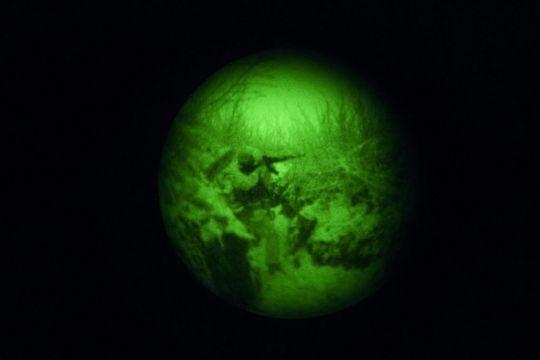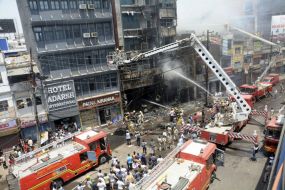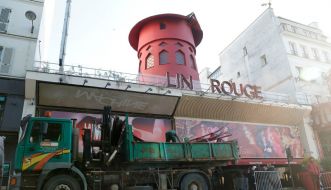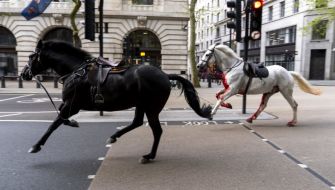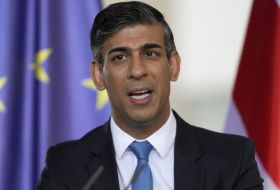The French president and the German chancellor will head to Moscow and Kyiv in the coming weeks, adding to diplomatic efforts to deter Russian president Vladimir Putin from launching an invasion of Ukraine.
France’s Emmanuel Macron is scheduled to visit Moscow on Monday and Kyiv on Tuesday, while Germany’s Olaf Scholz will travel to Kyiv on February 14 and Moscow on February 15.
The high-level visits come as China has backed Russia’s demand that Nato be precluded from expanding to Ukraine, and after the US accused the Kremlin on Thursday of an elaborate plot to fabricate an attack by Ukrainian forces that Russia could use as a pretext to take military action.
The US has not provided detailed information backing up the claims, which Moscow has vehemently denied.
While France is a major player in Nato and is moving troops to Romania as part of the alliance’s preparation for possible Russian action, Mr Macron has also been actively pushing for dialogue with Mr Putin and has spoken to him several times in recent weeks.

The two will hold a one-on-one meeting on Monday, Mr Macron’s office said.
Mr Macron is following a French tradition of striking a separate path from the United States in geopolitics, as well as trying to make his own mark on the crisis and defend Europe’s interests.
Germany has emphasised the importance of various diplomatic formats in tackling the tensions and has refused to send weapons to Ukraine, irking some allies. Mr Scholz also has faced criticism at home lately for keeping a low public profile during the crisis.
After weeks of talks in various diplomatic formats have led to no major concessions by Russia and the US, it is unclear how much impact the trips will have. But Ukraine’s foreign minister Dmytro Kuleba said on Friday that “top-level visits seriously reduce challenges in the sphere of security and upset the Kremlin’s plans”.
I spoke with Ukrainian Foreign Minister @DmytroKuleba about what more we can do to deter Russia’s aggression. We stand with Ukraine and its people, who want peace, and will always support Ukraine’s sovereignty and territorial integrity.
— Secretary Antony Blinken (@SecBlinken) February 4, 2022
Advertisement
US secretary of state Antony Blinken had a call with Mr Kuleba on Friday to discuss the Russian military build-up and steps “to encourage Russia to pursue diplomacy over war and ensure security and stability”.
Mr Blinken reaffirmed the US and its allies’ willingness to “impose swift and severe consequences on Russia if it chooses to escalate,” state department spokesperson Ned Price said.
In a call on Wednesday with US president Joe Biden, Mr Macron filled him in on his diplomatic efforts. In talks with the Russian and Ukrainian leaders Thursday night, Mr Macron’s office said they discussed ways to “identify elements that could lead to de-escalation”, and “conditions for strategic balance in Europe, which should allow for the reduction of risks on the ground and guarantee security on the continent”.
Mr Scholz has a previously planned meeting with Mr Biden in Washington on Monday.

Moscow has been signalling an apparent readiness for more talks with Washington and Nato in recent days. Some experts say that as long as Russia and the West keep talking, that is a reason for cautious optimism.
Russia has amassed more than 100,000 troops near Ukraine’s northern and eastern borders, raising concern that Moscow might invade again, as it did in 2014. The troop presence and uncertainty has unnerved Ukrainians and hurt the country’s economy.
The Kremlin has denied that an invasion is planned and has demanded guarantees from the West that Ukraine will never join the bloc, that deployment of Nato weapons near Russian borders will be halted and the alliance’s forces will be rolled back from Eastern Europe.
China lent its support to the demands after Mr Putin met with Chinese president Xi Jingping in Beijing before the opening of the Winter Olympics. After the talks, the two leaders issued an elaborate joint statement, declaring their opposition to any expansion of Nato.
“The Chinese side is sympathetic to and supports the proposals put forward by the Russian Federation to create long-term legally binding security guarantees in Europe,” the statement read.
Separately, Turkish president Recep Tayyip Erdogan has offered to mediate talks between Russia and Ukraine.
Mr Erdogan visited Kyiv this week and upon returning to Turkey charged that Western leaders have failed to make a positive contribution toward the resolution of tensions between Russia and Ukraine.
Mr Erdogan also said that Ukrainian president Volodomyr Zelensky strongly supports a Turkish proposal for mediation to reduce tensions between the two nations.
“Unfortunately, the West has not contributed anything toward a solution of this issue,” Mr Erdogan said. “They are just creating obstacles.”
